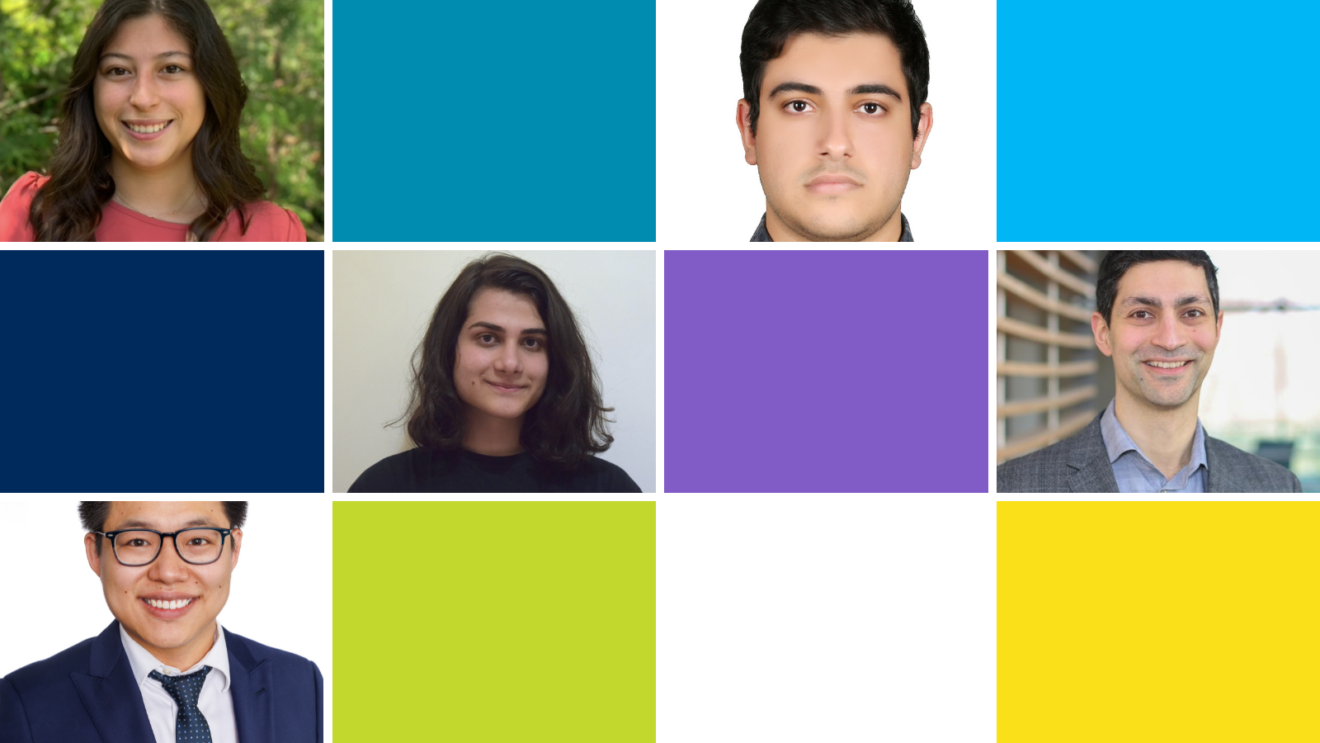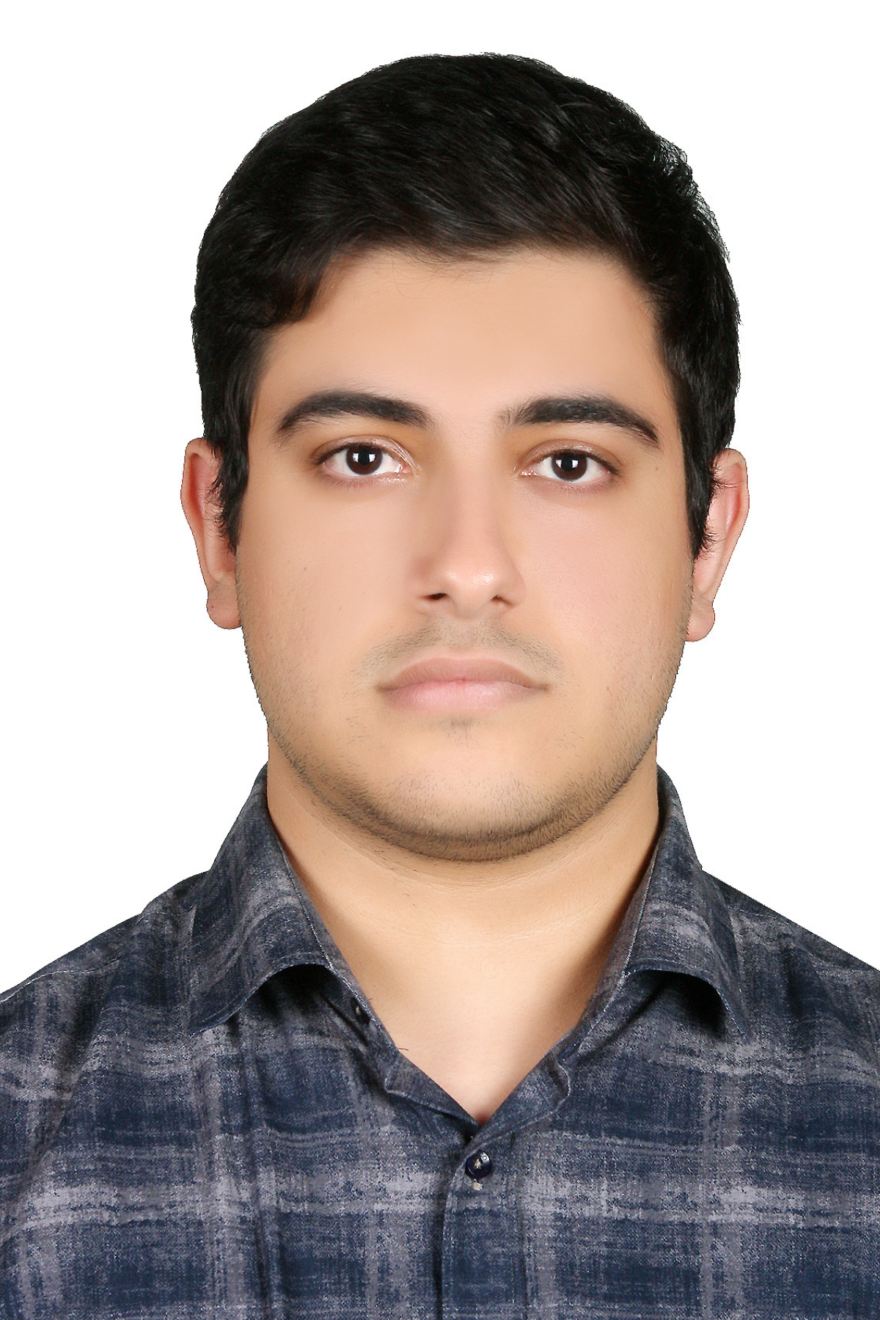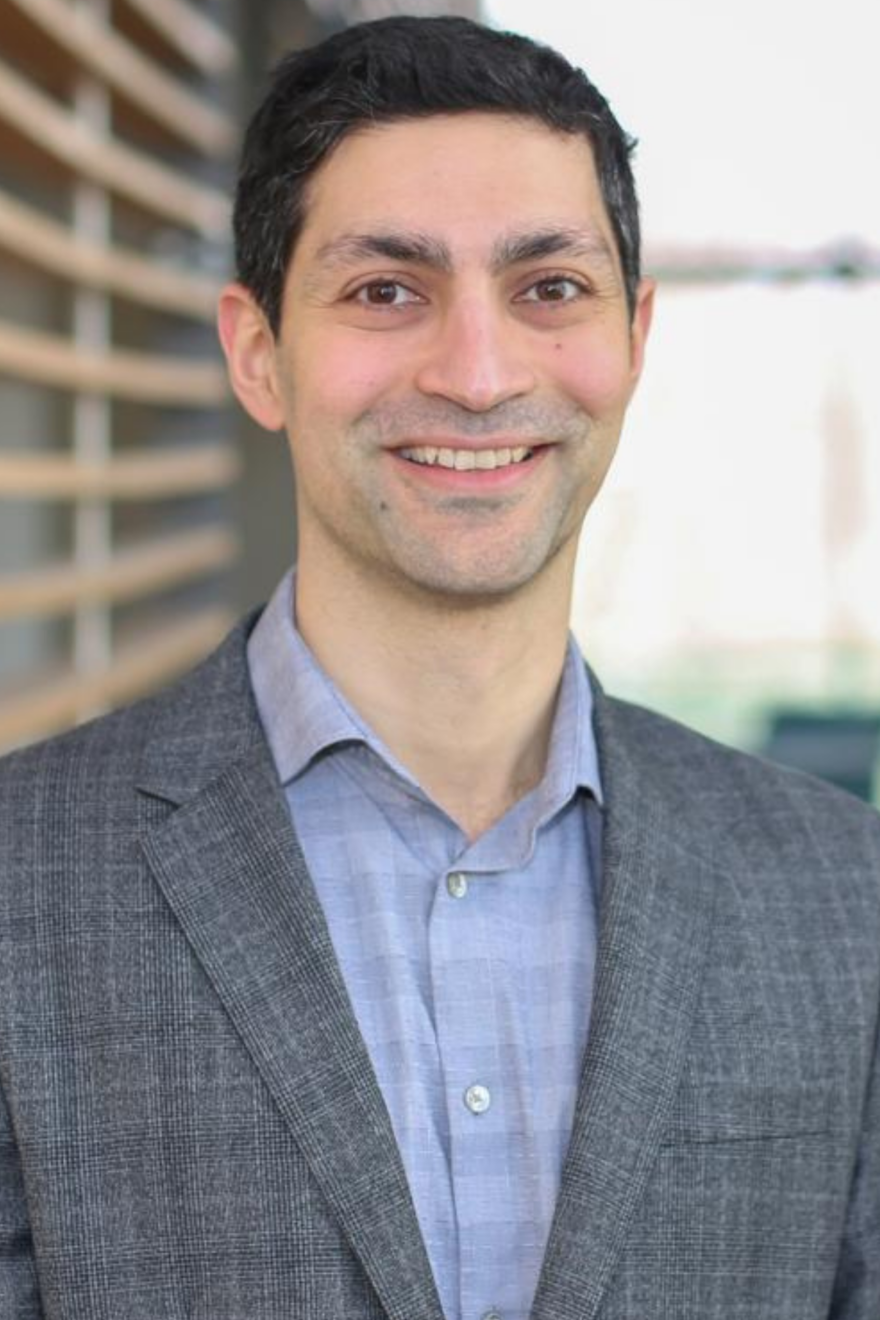The Vector Institute has unveiled the cohort of 2025–26 Vector Scholars. Among the 120 recipients are five outstanding IHPME graduate students.

By: Marielle Boutin
Since the program launched in 2018, Top AI graduates from across Ontario have been awarded scholarships from the Vector Institute in an effort to nurture growing AI talent. The 2025–26 Vector cohort includes five current and incoming IHPME scholars.
Meet the IHPME recipients who are united by a focus on clinical informatics, AI, and digital health innovation:

AmirHossein Haji Mohammad Rezaei
MSc in Health Systems Research (AI Emphasis)
An incoming student in the HSR program’s artificial intelligence stream, Haji Mohammad Rezaei completed his undergraduate studies in computer engineering at Sharif University of Technology in Tehran, Iran. His research interests are centered around how AI can be applied in healthcare and clinical decision-making, more specifically, developing equitable AI models that can improve system-level outcomes in public health. He is particularly interested in how large language models (LLMs) can be used to support clinical decision-making, help educate patients, and streamline administrative processes while ensuring fairness and safety.
“Being recognized as one of Ontario’s top incoming students in AI is both an honor and a motivator. This scholarship offers valuable opportunities to engage with experts in the field and deepen my research. It will also provide the financial support needed to focus more fully on my thesis and academic goals without external pressures,” says Haji Mohammad Rezaei.

Sepehr Harfi
MSc in Health Systems Research (AI Emphasis)
Harfi also received their BSc in Computer Engineering from Sharif University of Technology, where they began taking courses in health informatics and AI, leading them to take on research internships through institute like the University of Zurich and the Wellcome Sanger Institute. This further developed their interest in the field of AI and biomedical informatics, eventually leading them to IHPME.
“I was drawn to IHPME for its world-class research and esteemed faculty who are shaping the future of health systems and policy. The opportunity to learn from and collaborate with leaders whose work directly informs real-world healthcare challenges aligns perfectly with my academic and professional goals,” says Sepehr.
Sepehr hopes to build on the momentum of receiving the scholarship to apply AI in areas that are currently resource constrained.
“This is truly a milestone in my research career as it opens new opportunities and connections with people who are exceptional in the field. I see this award as a catalyst for success as a researcher in the field, as it opens new doors,” says Sepehr.

Amirali Mahpour
Executive Master of Health Informatics
A physician and Assistant Professor of Medicine at Queen’s University, Dr. Mahpour’s machine learning interests centre around the field of clinical informatics, in particular, natural language processing, automation targeting clinical efficiency, decision-making, and prediction models. Dr. Mahpour’s interest in health informatics was sparked by his drive to bridge his passions for data science, artificial intelligence with medicine, and inspiring him to deepen his professional focus and ultimately earn a Vector Scholarship.
“As an academic clinician I am deeply involved in various levels of the healthcare system and see areas where applications of machine learning can have wide-reaching benefits. I feel proud to be supported by a scholarship promoting the pursuit of cutting-edge applications and research in machine learning here in Canada. This support helps me lead in my goal to use advanced technologies in an efficient and responsible way to help reduce the cognitive burden on physicians and improve access to care for patients,” says Dr. Mahpour.

Jim Yang
Executive Master of Health Informatics
A practicing Academic Emergency Physician and Assistant Professor in the Department of Emergency Medicine at the Ottawa Hospital and the University of Ottawa, Dr. Yang was motivated to join IHPME’s EMHI program by his interest in exploring how AI can enhance care, streamline systems, and support healthcare providers.
“IHPME is regarded as a destination for the healthcare leaders of tomorrow to gain expertise, build skills, and network with like-minded peers to build a better future for Canadian Healthcare,” says Dr. Yang.
Dr. Yang is also the Director of Clinical Informatics and Digital Innovation for the Department of Emergency Medicine at the Ottawa Hospital and the Co-Chair of the Emergency Medicine Regional Working Group for the Atlas Alliance.
Additionally, he is an EHR Implementation expert and has consulted on multiple EHR implementations in Canada. Currently, he is co-leading the first trial exploring the implementation of ambient AI dictation technology in Canadian emergency departments.
Dr. Yang is eager to leverage his position as a Vector Scholar to develop new expertise and improve efficiency in healthcare systems.
“Medicine is becoming increasingly complex, and with that complexity comes rising costs and growing inefficiencies—posing a serious threat to the long-term sustainability of the Canadian healthcare system,” says Dr. Yang. “By building my knowledge in AI, I hope to explore how we can better support clinicians in delivering care and reduce system inefficiencies. While AI can’t increase funding, it can help ensure every healthcare dollar is used more effectively to improve patient outcomes.”
We also recognize another outstanding Vector Scholar, Alex Coulter, an incoming MHI student.
Related News

Sign up for IHPME Connect.
Keep up to date with IHPME’s News & Research, Events & Program, Recognition, e-newsletter.
Subscribe to Connect Newsletter
Get in Contact
Communications
Marielle Boutin
Email Address: ihpme.communications@utoronto.ca





